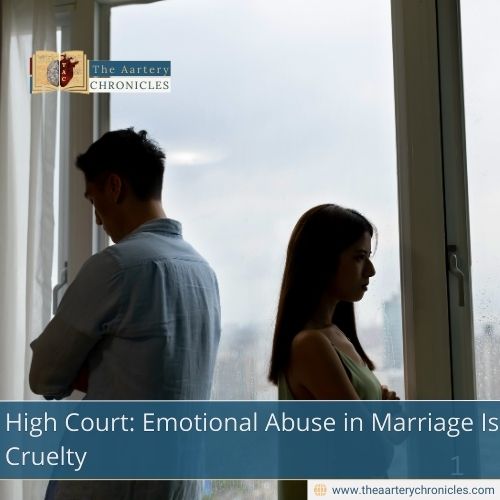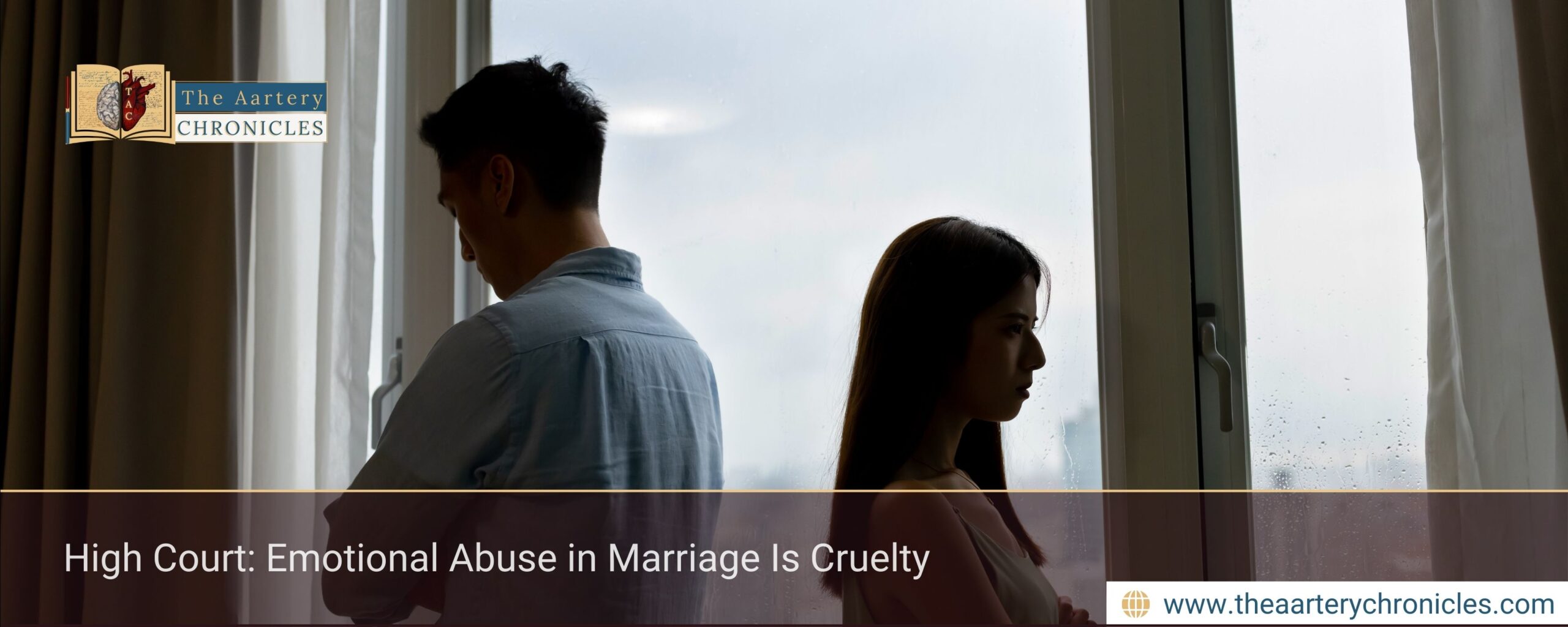

High Court: Emotional Abuse in Marriage Is Cruelty
The Delhi High Court has ruled that a wife pressuring her husband to cut family ties amounts to cruelty, especially when such behaviour is persistent and accompanied by humiliation, threats, or isolation. The judgment underscores that repeated emotional abuse in marriage can affect not just legal outcomes but also the psychological well-being of partners.
Court Highlights Mental Cruelty in Marriage
The bench of Justices Anil Kshetarpal and Harish Vaidyanathan Shankar observed that while it is not inherently cruel for a spouse to prefer living separately, continuous pressure to sever ties with the husband’s family crosses the boundary into mental cruelty.
The court emphasised that such actions cause long-term emotional distress, which may significantly impact the mental health of both spouses. In medical and psychological terms, ongoing humiliation, verbal abuse, and enforced social isolation are well-recognised triggers for stress, depression, and anxiety disorders.
Case Background and Legal Outcome
The case arose from an appeal filed by a woman challenging the family court’s decision to dissolve her marriage on grounds of cruelty. The High Court dismissed the appeal, upholding the earlier verdict.
According to the findings, the wife:
- Persistently insisted that her husband divide the family property.
- Pressured him to live apart from his widowed mother and divorced sister.
- Frequently humiliated him in public.
- Filed repeated police complaints against him and his family.
The court concluded that these actions collectively amounted to mental cruelty severe enough to justify divorce.
Impact on Family Relationships and Child’s Well-Being
The judgment also noted that the wife denied the husband and his family emotional and physical access to their child. The bench described this as a unique and serious form of cruelty because it deprived the child of important family connections and support.
From a health perspective, both children and parents can suffer long-lasting psychological consequences when family bonds are intentionally broken. Research in family psychology shows that alienating a child from one side of the family may increase risks of emotional insecurity, behavioural problems, and strained parent–child relationships later in life.
Why This Matters for Mental and Emotional Health
The High Court stated that the husband successfully demonstrated a pattern of persistent pressure, humiliation, threats, and alienation, which cannot be considered a normal part of marital disagreements.
For healthcare professionals and mental health experts, the case highlights how sustained marital conflict and family alienation can contribute to mental cruelty, creating an environment that may lead to stress-related illnesses, mood disorders, and long-term emotional trauma.
Conclusion
The Delhi High Court’s ruling reinforces the principle that a wife pressuring a husband to cut family ties amounts to cruelty when such actions are deliberate, repetitive, and emotionally harmful. The decision serves as a reminder that maintaining supportive family connections plays a vital role not only in marital harmony but also in the mental well-being of spouses and children.
Source: Inputs from various media Sources
I’m a pharmacist with a strong background in health sciences. I hold a BSc from Delhi University and a pharmacy degree from PDM University. I write articles and daily health news while interviewing doctors to bring you the latest insights. In my free time, you’ll find me at the gym or lost in a sci-fi novel.
- Priya Bairagi
- Health News and Updates,People Forum
- 29 September 2025
- 09:00








